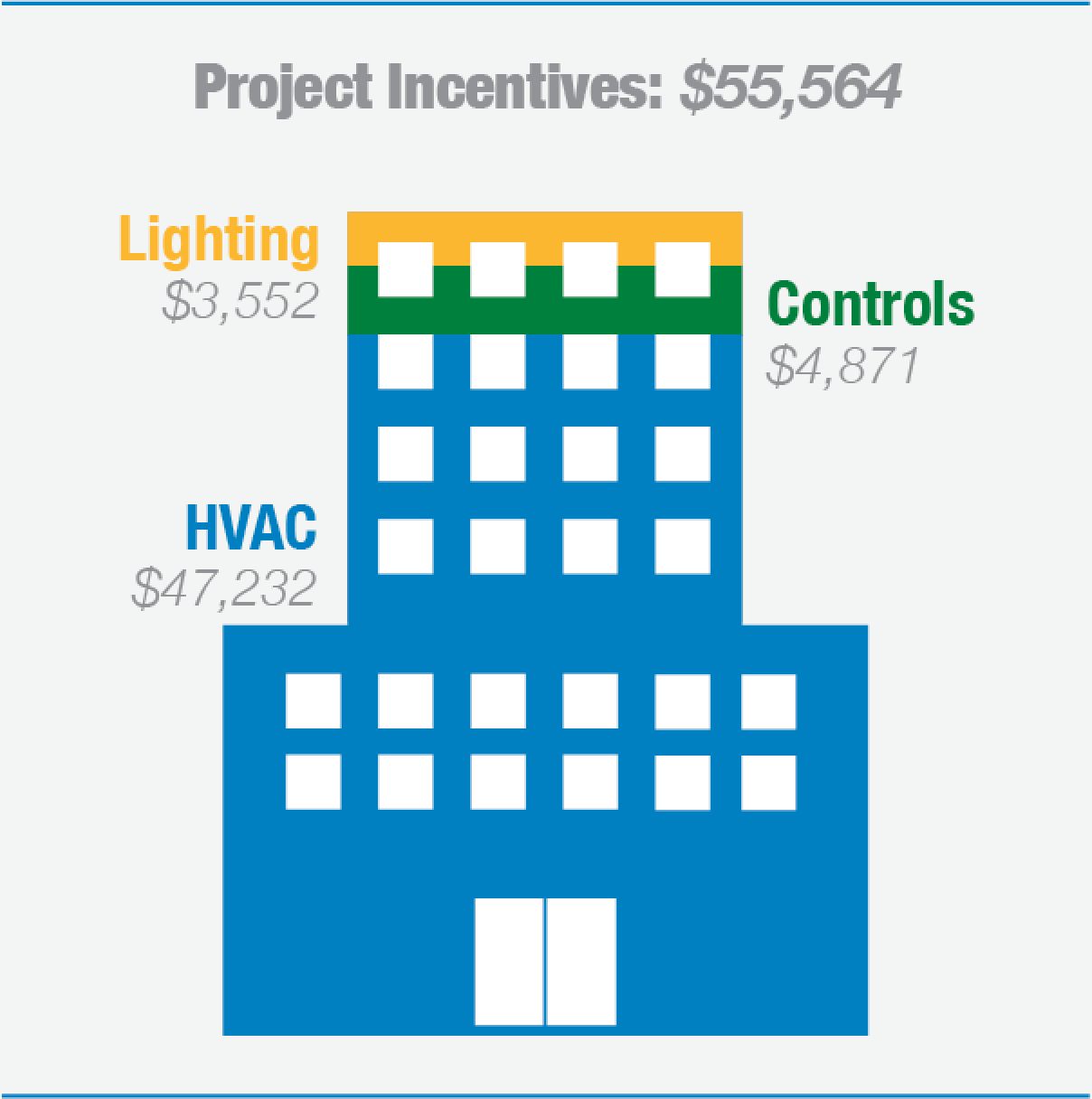Success Story: Middlesex County Extension Services
| Project Highlights | ||
| Total Project Cost | $79,505 |
.png) Middlesex County’s Agricultural Extension building provides office space for the EARTH Center in Davidson’s Mill Pond Park (pictured above). Energy |
| NJCEP Incentives | $55,654 | |
| Project Payback | 2.1 years | |
| Estimated Annual Savings | $11,604 21,311 kWh 2,890 therms |
|
| Direct Install Partner | Tri-State Light & Energy | |
| Technologies
T8 and LED lighting; occupancy sensors; programmable thermostats; electric split-system air |
||
| Project information, savings and environmental benefits were provided by the project contact. | ||
|
County building sets environmental example through energy efficiency and organic farming workshops Background Since Middlesex County built the Environment Agriculture Research Teaching Health (EARTH) Center in 2005, green-thumb residents from throughout New Jersey have been drawn to the center to learn how to lessen their environmental impact. The EARTH Center, which sits in the middle of the county’s Davidson’s Mill Pond Park, offers workshops that demonstrate gardening and landscaping practices that avoid the use of unnecessary fertilizers and pesticides. In 2014, county officials chose to improve the energy efficiency of the Middlesex County Extension building where the EARTH Center offices are located. Reducing the building’s energy use was consistent with the environmental mission of the Center as well as the county government’s plan to lower its operating expenses. “Improving the energy efficiency of county-owned buildings is part of a larger strategy of protecting our environment while keeping expenses in check,” said Freeholder Director Ronald G. Rios. “Middlesex County has worked hard to lower our expenses so that we do not increase the burden on our taxpayers.” Middlesex officials turned to New Jersey’s Clean Energy Program™ (NJCEP) and the U.S. Department of Energy’s (DOE) State Energy Program (SEP) to upgrade the Extension Services building with new, more energy-efficient equipment. |
|
|
Anybody who runs a business, municipality or county should look to the Direct Install program. Not only are you saving money, you’re getting better equipment and helping the environment. Charles E. Tomaro
Middlesex County Parks
|
Solution The Extension Services building’s average electricity use fell below 200 kW per month, making it eligible for the NJCEP Direct Install program. Direct Install is a turnkey solution that provides a free energy assessment and incentives that cover 70 percent of the cost to replace inefficient equipment. The program makes it easy and affordable for local governments and small businesses to upgrade to high-efficiency equipment. Tri-State Light & Energy, a participating NJCEP Direct Install contractor, performed an assessment of the Extension Services building that resulted in the replacement of the heating, ventilation and air conditioning (HVAC) system. In addition, Tri-State Light & Energy installed new LEDs, T-8 lighting and occupancy sensors throughout the building. Through the Direct Install program, Middlesex County was able to purchase the new equipment at only 30 percent of its cost. NJCEP incentives amounted to $55,654 of the $79,505 total project cost. Funding for the Direct Install incentives was provided by the DOE State Energy Program (SEP), a federal program that assists states in implementing energy efficiency and renewable energy programs through grants and technical assistance. In New Jersey, SEP funds provide incentives for customers who are otherwise ineligible for the Direct Install program since they are not required to contribute to the Societal Benefit Charge that supports NJCEP. |
| Since installing the more efficient equipment, the Extension Services building’s utility bill has been cut in half. The upgrades are estimated to save Middlesex County 21,311 kWh and 2,890 therms per year, totaling about $11,604 annually.
In addition to the environmental and cost benefits, replacing the Extension Services building’s HVAC equipment addressed the facility’s maintenance concerns. At 10 years old, the HVAC system had reached the end of its useful life. The air conditioning condensers were intermittent and failing, requiring continued maintenance. “Rather than simply put bandages on our outdated equipment, the Direct Install program has allowed us to upgrade our facility at minimal cost,” said Freeholder Charles E. Tomaro, chair of the county’s Infrastructure Management Committee. “Anybody who runs a business, municipality or county should look to the Direct Install program. Not only are you saving money, you’re getting better equipment and helping the environment.” |
|
More Information





.jpg)

.jpg)


